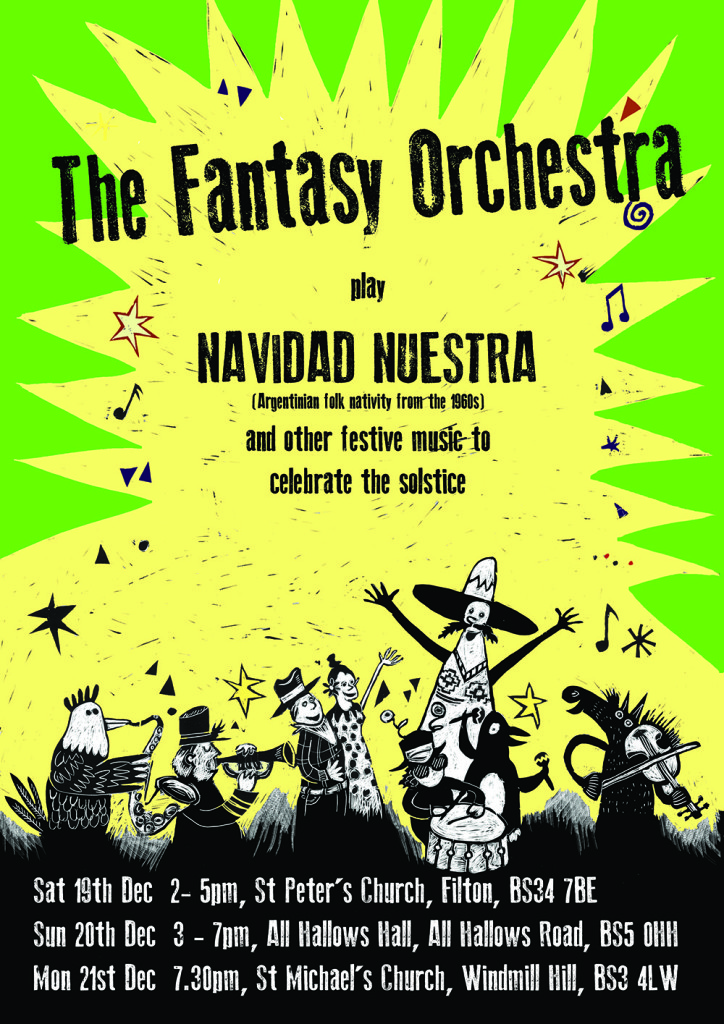To celebrate the centenary of Ariel Ramirez’s birth, here is arguably his most famous song. It was first recorded by Mercedes Sosa on the album “Mujeres Argentinas” (1969).
The lyrics, by Ramirez’s regular collaborator Félix Luna, were inspired by the tragic death of the Argentine poet Alfonsina Storni. Alongside her poetry she worked a a journalist, often championing women’s rights. She drowned herself in 1938 (aged 46), leaving behind a final poem “Voy a dormir” (“I am going to sleep”), that is referenced in the lyrics of the song.
ALFONSINA Y EL MAR Por la blanda arena que lame el mar Su pequeña huella no vuelve más, Un sendero solo de pena y silencio llegó Hasta el agua profunda, Un sendero solo de penas mudas llegó Hasta la espuma. Sabe dios que angustia te acompañó Que dolores viejos calló tu voz Para recostarte arrullada en el canto De las caracolas marinas La canción que canta en el fondo oscuro del mar La caracola. Te vas Alfonsina con tu soledad Qué poemas nuevos fuiste a buscar ...? Una voz antigua de viento y de sal Te requiebra el alma y la esta llevando Y te vas hacia allá como en sueños, Dormida, Alfonsina, vestida de mar ... Cinco sirenitas te llevarán Por caminos de algas y de coral Y fosforecentes caballos marinos harán Una ronda a tu lado Y los habitantes del agua van a jugar Pronto a tu lado. Bájme la lámpara un poco más Déjame que duerma nodriza en paz Y si llama él no le digas que estoy Dile que Alfonsina no vuelve ... Y si llama él no le digas nunca que estoy, Di que me he ido ... Te vas Alfonsina con tu soledad Qué poemas nuevos fuiste a buscar ...? Una voz antigua de viento y de sal Te requiebra el alma y la está llevando Y te vas hacia allá como en sueños, Dormida, Alfonsina, vestida de mar ... |
ALFONSINA AND THE SEA On the soft sand that touches the sea Her little footprints won't be seen again A path of nothing but pain and silence reached up to the deep water A path of nothing but muted pains reached up to the surf God knows what anguish accompanied you What old griefs silenced your voice To lie down, lulled into sleep by the singing of the seashells The song that sings in the dark depths of the sea The seashell You leave, Alfonsina, with your loneliness Which new poems were you looking for? An ancient voice of wind and salt Shattering your soul and taking it And you go to there as if in a dream Sleeping, Alfonsina, dressed in the sea Five little mermaids will escort you Down paths made of seaweed and coral And phosphorescent seahorses Will circle around you And the aquatic dwellers will soon play by your side Put the lamp down a bit more for me Let me to sleep in peace, nurse And if he calls don't tell him I'm here Tell him that Alfonsina isn't coming back And if he calls, don't ever tell him that I'm here Tell him that I have gone You leave, Alfonsina, with your loneliness Which new poems were you looking for? An ancient voice of wind and salt Shattering your soul and taking it And you go to there as if in a dream Sleeping, Alfonsina, dressed in the sea |
